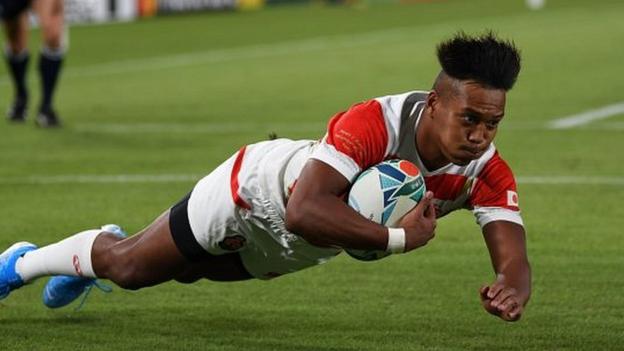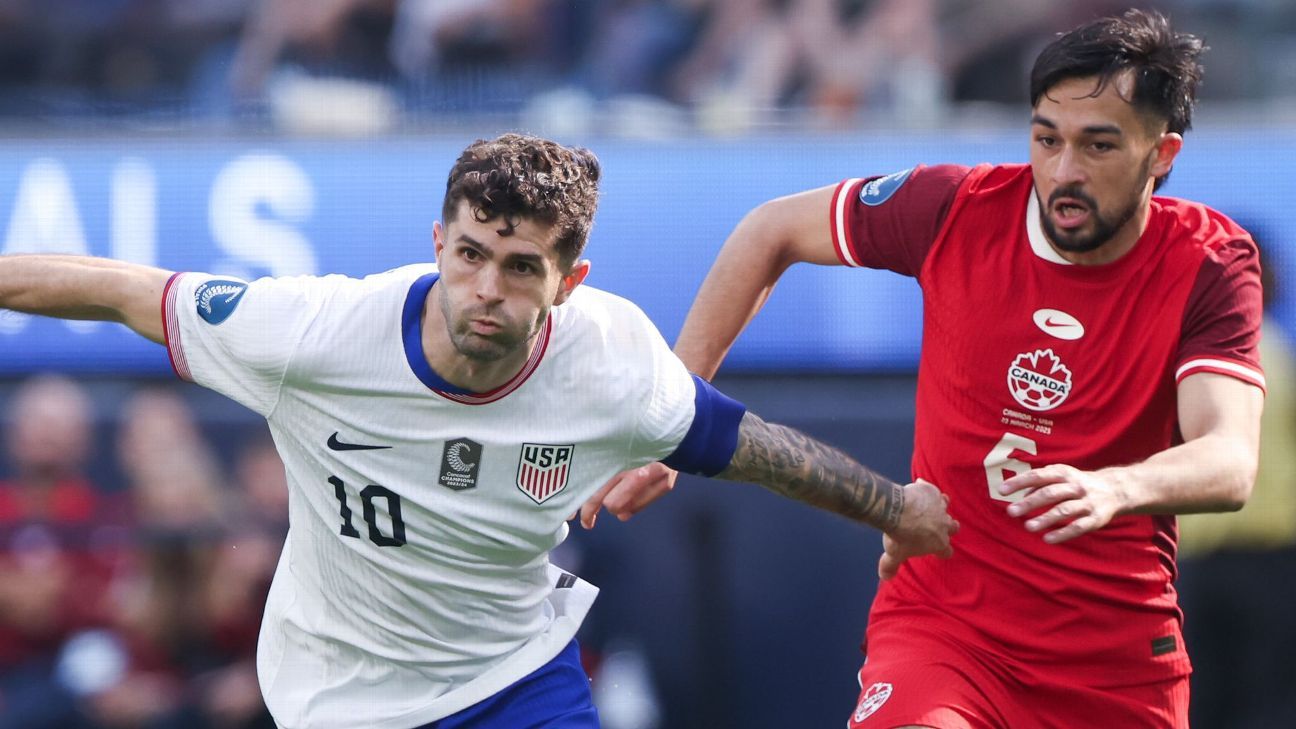
The World Cup was just over an hour old when Japan wing Kotaro Matsushima completed his hat-trick against Russia and immediately became a hero.
It was the first time a Japanese player had scored three tries in a World Cup match, earning him the nickname 'Ferrari' because of his dazzling speed.
After helping the hosts stun Ireland, things got even better for the 26-year-old. His late score gave Japan a bonus-point win against Samoa, and then came Matsushima's crowning moment in the dramatic win against Scotland.
He crossed for his side's opening try and ignited a glorious Japanese attack which helped the country reach the World Cup quarter-finals for the first time.
The match was the most-watched television programme of the year in Japan, with an audience which peaked at more than 60 million people.
Matsushima's score made him the 2019 World Cup's joint top try-scorer so far, alongside Wales' Josh Adams on five, and placed him front and centre on the global rugby stage.
But for one man inside the stadium, this recognition for the wing's electric skill and pace had been a long time coming.
A 30-minute drive from International Stadium Yokohama, where the Scotland match was played, is the pitch where Hideyuki Fujiwara helped to mould international rugby's latest sensation.
Fujiwara was Matsushima's coach at Toin Gakuen High School for three years, between the ages of 15 and 18, but his influence has stretched far beyond that.
The 51-year-old describes their relationship as "close to a father-son bond", a particularly poignant description given that Matsushima's father died while he was at the school.
They exchange messages before every match. Fujiwara passes on advice and good luck and Matsushima always replies, no matter how busy he is.
Watching someone grow from a talented teenager into a player creating World Cup history for their country must be an emotional experience, but it has not taken Fujiwara by surprise.
"I expected it," said Fujiwara, who is still the coach at Matsushima's old school. "I expected something great from him.
"He had a huge impact on the Scotland game. He was always a great player but he has grown into an even better and more impressive one.
"The kids who play at the school now are really inspired by him at this World Cup.
"There are always kids who look up to him and want to be like him but it's hard to find anyone as good as him."
From team-mates to opponents
After Matsushima finished school, it was Fujiwara who convinced him to join a South African side rather than stay in Japan and play university rugby like his team-mates.
Matsushima was born in Pretoria to a Japanese mother and Zimbabwean father and lived in South Africa until he moved to Japan aged six, so playing for Durban-based side Sharks was not too much of a foreign concept.
It was during this time that he played alongside one of the other stand-out wings of this World Cup: Cheslin Kolbe.
He and Kolbe were both part of the South Africa Under-20 training squad for the 2013 Junior World Championship.
Kolbe went on to compete in the tournament, but Matsushima did not. Instead, he earned his first cap for Japan the following year.
On Sunday they will be on the same pitch again, this time as opponents. It is Matsushima's first World Cup quarter-final against the country of his birth, but he already has experience of beating the Springboks on rugby's greatest stage.
He started in Japan's famous, unexpected win against South Africa in the 2015 World Cup, but Fujiwara's most treasured memory of Matsushima came a few years before that.
"In the national tournament quarter-final in his last year of high school, 2011, he performed exceptionally," Fujiwara explained.
"He did everything right, he scored tries every time he touched the ball. We were national champions that year, it was the first and only time we have ever won.
"It is one of my best memories as a coach, it will stay with me every day."
'He's very quiet and shy'
Though Matsushima has been catching eyes on the pitch, he is happy to avoid attention off it.
Fujiwara said Matsushima was a mischievous student, but he also describes him as very shy.
He said Matsushima is often asked to be on television by national broadcaster NHK, but refuses unless it's a rugby-related programme. Fujiwara believes the wing can handle being in the spotlight, though.
"He's not very fond of the media," he explained.
"It takes a lot of time so he often refuses but his manager says he should do more.
"The person he is and him in the rugby world are two separate things so he can manage the attention.
"He's fundamentally very quiet and shy but he's strong inside because he's been brought up very well."
'He's playing for the team'
Former Japan fly-half Kosei Ono, who played alongside Matsushima in the 2015 win against South Africa, thinks this reserved nature could actually be one of the secrets to the wing's success.
The pair also play together at Top League side Suntory Sungoliath, where Matsushima's performances earned him the league's Most Valuable Player award in 2018.
Ono says Matsushima's reluctance to steal the limelight reflects a characteristic of the Japan team which was fundamental in their four pool-stage wins.
"He's one of many players who are playing for the team and appearing in the right places at the right time to finish off the team performance," Ono said.
"Japan are playing for each other rather than against each other and no one is trying to outshine anyone. That's just Japanese culture, I suppose; everyone is doing what's best for the team."
'He can inspire the whole country'
Rugby has had unprecedented attention in Japan since the World Cup arrived and passionate fans have created an incredible atmosphere at the hosts' games.
Sunday's quarter-final against South Africa will be no different and Matsushima could reinforce his status as a local sporting hero by helping his side to another upset against the Springboks.
He may not enjoy the attention that would bring, but Ono believes that it is worth the impact he could have on the next generation of Japanese players.
"In 2015, there weren't too many Japanese superstars that we looked up to," he said.
"If he finishes one day and sees the next generation of players that want to be Kotaro Matsushima, how cool would that be?
"That's what would be his motivating factor. He wouldn't like it as such, but it's pretty cool that he can inspire little kids and the whole country doing what he loves."















 Phone: (800) 737. 6040
Phone: (800) 737. 6040 Fax: (800) 825 5558
Fax: (800) 825 5558 Website:
Website:  Email:
Email: 






